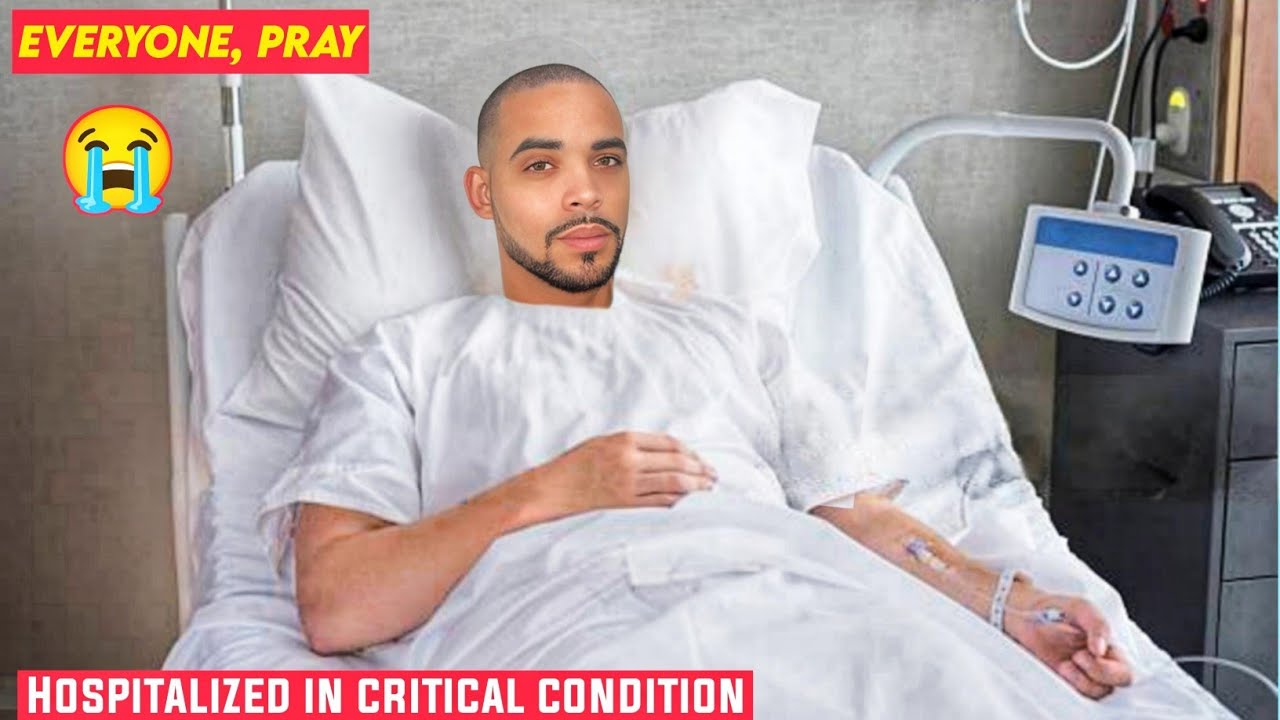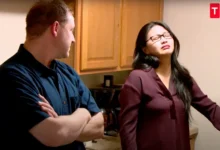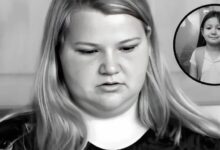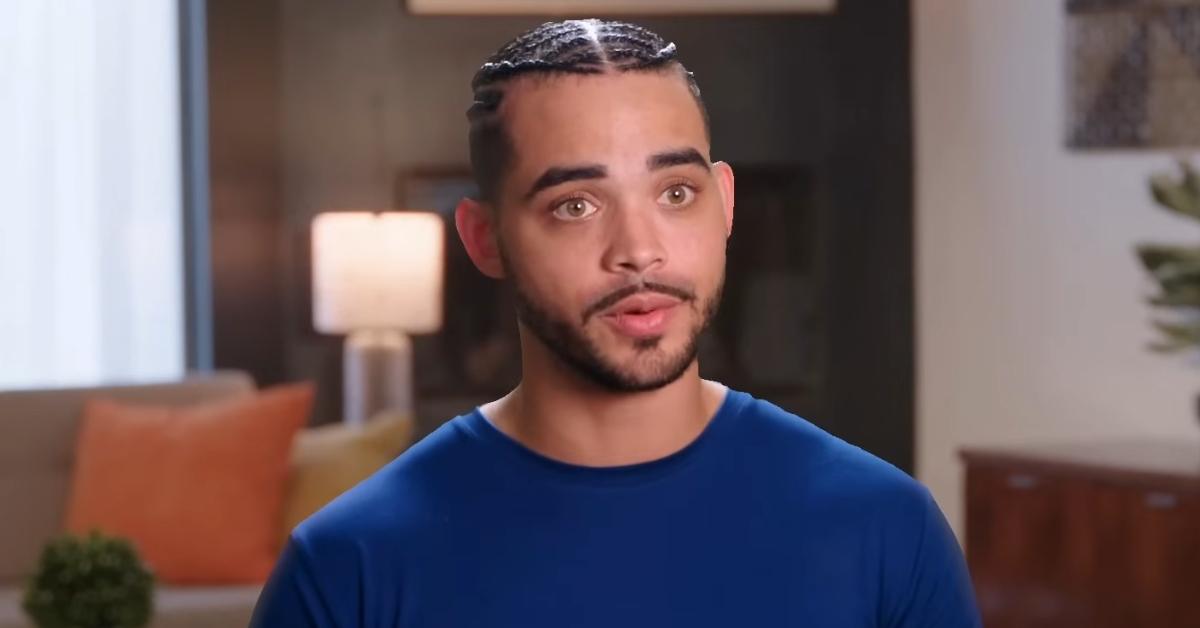He Couldn’t Breathe’ 😢 Rob Warne Hospitalized With Life-Threatening Lung Crisis!
When he originally appeared on 90-Day Fiancé with British influencer Sophie Sierra, people had mixed feelings.
Was he pleasant or trying to trick you? Protective or controlling? No one could decide, but everyone agreed on one thing—Rob was interesting.
His apartment wasn’t very big. He had a difficult way of living. His past? Not very clear. But that didn’t stop Sophie from leaving everything behind to move to Los Angeles with him.
They wrote a love story that was both exciting and dangerous, one that millions of people watched every week, eager to see who would give up first.
But behind the cameras, in confessionals, and when the lights went off, Rob was already falling apart. He didn’t cry on camera. He didn’t beg for understanding. He didn’t reveal how much it was already bothering him.
Rob Warren had mastered the skill of pretending. No one—not Sophie, not the producers, not even Rob himself—knew how long that performance had been going on.
To understand how Rob got to this point—where he is in the hospital, weak and battling for breath—we need to go back even further.
Before TV, before Sophie, before the alcohol, Rob was born and raised in Bakersfield, California. His mom worked two jobs. His dad? Mostly absent. Rob only remembers him through short visits, broken promises, and empty beer bottles on the kitchen counter.
Even as a child, Rob learned to protect himself. He didn’t say anything. He stayed sharp. He realized that feelings were a luxury he couldn’t afford.
At 15, Rob was already working side jobs to help his mom pay the rent. At 17, he got his first modeling job. By 20, he was living in Los Angeles, sleeping on couches, and chasing the type of stardom that seemed like freedom.
But the camera never told the whole story. It didn’t show the nights he went to bed hungry or didn’t sleep at all. It didn’t show his loneliness or the lingering question that haunted him:
“What if I’m not enough?”
Rob looked for the answer in Instagram likes, short-term relationships, and empty promises. He kept his world small, controlled. But as he started losing that control, he found alcohol.
It started innocently, as it does for many—a few beers at a wrap party, a whiskey to calm his nerves before a date, vodka to forget a failed gig.
But soon, Rob was drinking every night—not socially, not casually, but compulsively. And he hid it well. Even Sophie, with her sharp instincts, couldn’t see the whole picture.
She noticed the mood swings, the emotional withdrawal, the stress. But she didn’t see the empty bottles under the sink, the sneaky refills during bathroom breaks, or the way he planned his next drink each morning.
Drinking was no longer a way to relax—it was a shield, a ritual. And Rob didn’t think he was addicted. He was still functioning—or so he thought.
When the cameras stopped rolling, Rob was left with the one thing he couldn’t escape: nothing.
No producers, no confessionals, no deadlines. Just him, his thoughts, and the growing emptiness. His relationship with Sophie deteriorated quickly. Trust, already fragile, broke under unspoken resentments and unmet needs.
Their breakup wasn’t dramatic—it was hollow. Two people who once believed in forever walked away silently, in opposite directions.
For Rob, that loss was the final straw. He drank to sleep. He drank to wake up. To forget Sophie, forget the show, forget himself.
Friends drifted away. Modeling jobs dried up. His body began to rebel—headaches, nausea, coughing fits he dismissed as allergies. His lungs were screaming, his body begging, but Rob, ever the master of ignoring pain, kept drinking.
It all came to a halt on the morning of June 3, 2025.
Neighbors heard a loud crash and faint coughing. Moments later, silence. Rob was found sprawled over his kitchen table—barely conscious, struggling to breathe. His skin was clammy, his pulse weak, his breaths uneven.
Paramedics arrived within minutes and stabilized him, rushing him to the hospital. Tests revealed years of neglect had caught up with him—chronic respiratory inflammation, liver stress, dehydration, and a weakened immune system.
But there was hope. The damage was reversible, the doctors said, but only if Rob stopped drinking.
For the first time in years, Rob wasn’t numb. He felt everything—the shame, the fear, the weight of time wasted. On the third night, he wrote one sentence on a napkin:
“I don’t want to disappear.”
After 11 days in the hospital, Rob was discharged. No press, no spectacle. Just a quiet ride to recovery. His steps were unsteady, his breathing shallow, but his resolve was clear.
For the first time, Rob Warren wasn’t running anymore. He was rebuilding—not perfectly, not for Instagram, but for himself.
There’s no tidy ending to Rob’s story. Recovery is messy, painful, and ongoing. But Rob is alive, breathing, and choosing truth over illusion, life over escape.
Sometimes, the bravest thing isn’t speaking up—it’s staying. It’s facing the pain and choosing to heal.
This isn’t the end of Rob Warren’s story—it’s where it truly begins.







